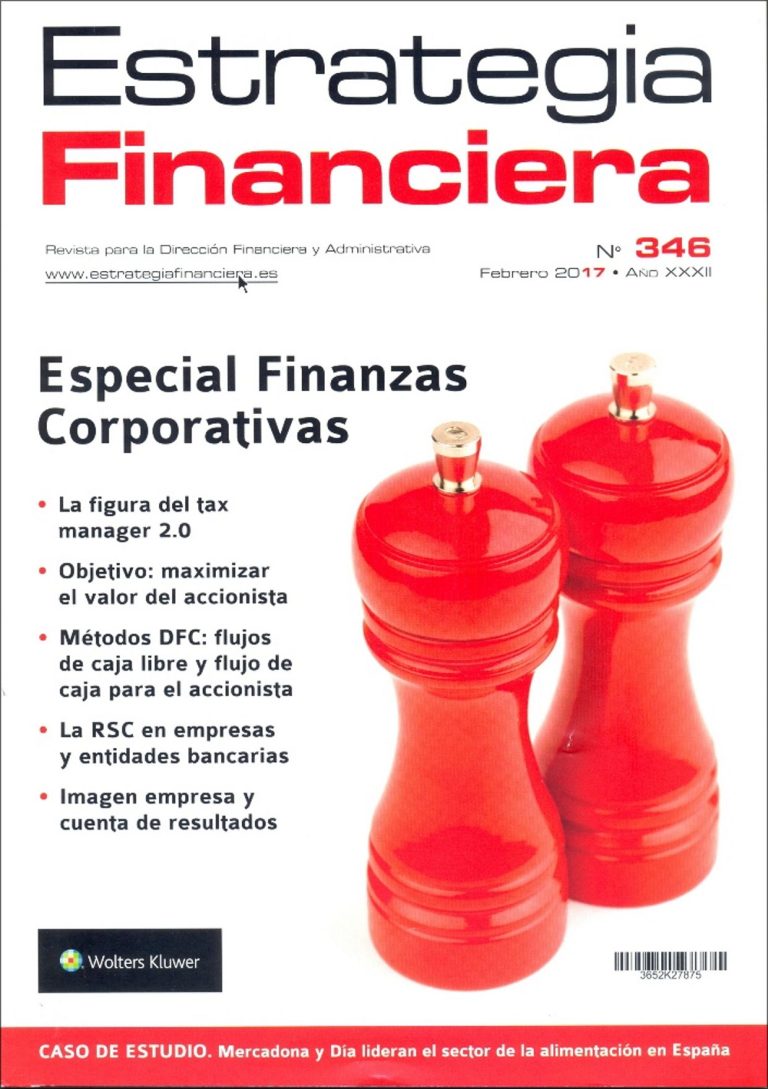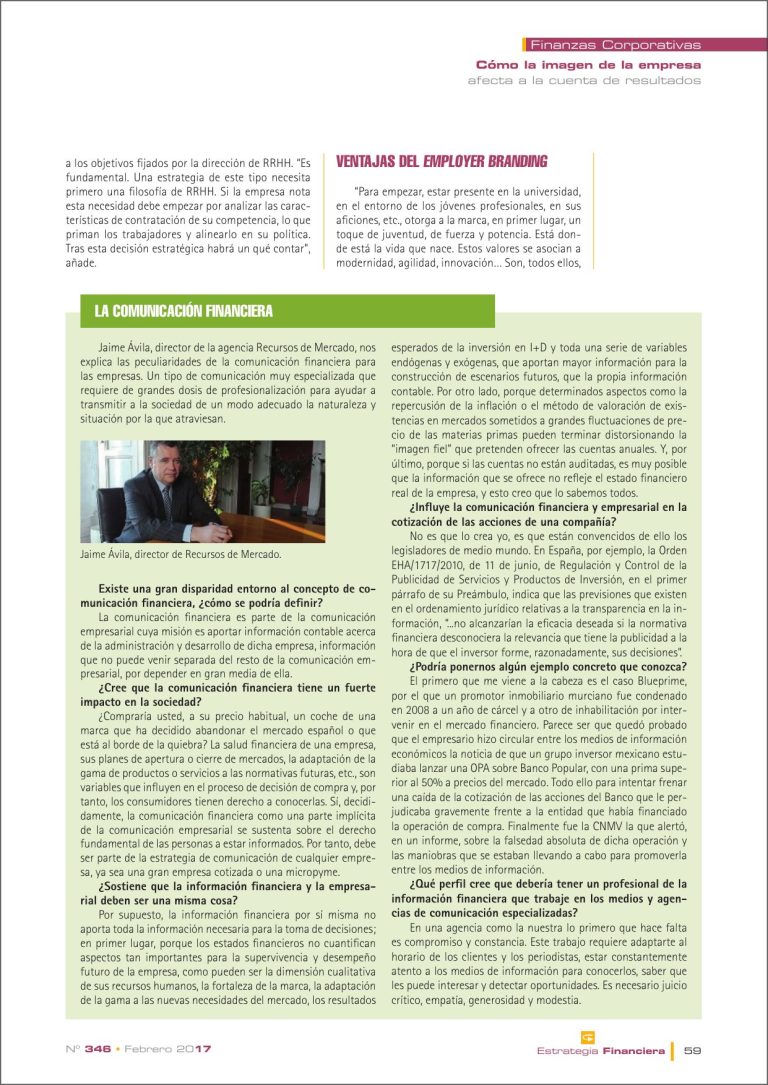Interview by Juan M. Comas in Estrategia Financiera – Nº 346 – February 2017
Jaime Ávila, Director of the agency Recursos de Mercado, explains the peculiarities of financial communication for companies. A highly specialised type of communication that requires a large dose of professionalism to help transmit to society in an appropriate way the nature and situation they are going through.
There is a wide disparity in the concept of financial communication, how can it be defined?
Financial communication is part of business communication whose mission is to provide accounting information about the management and development of the company, information that cannot be separated from the rest of business communication, as it depends to a large extent on it.
Do you believe that financial communication has a strong impact on society?
Would you buy, at your usual price, a car from a brand that has decided to leave the Spanish market or is on the verge of bankruptcy? The financial health of a company, its plans to open or close markets, the adaptation of the range of products or services to future regulations, etc., are variables that influence the purchasing decision process and therefore consumers have a right to know about them. Yes, indeed, financial communication as an implicit part of business communication rests on the fundamental right of individuals to be informed. It should therefore be part of the communication strategy of any company, whether it is a large listed company or a micro-SME.
Do you argue that financial and business reporting should be one and the same?
Of course, financial information by itself does not provide all the information necessary for decision making; firstly, because financial statements do not quantify such important aspects for the survival and future performance of the company, such as the qualitative dimension of its human resources, the strength of the brand, the adaptation of the range to new market needs, the expected results of investment in R&D and a whole series of endogenous and exogenous variables, which provide more information for the construction of future scenarios, than the accounting information itself. On the other hand, because certain aspects such as the impact of inflation or the inventory valuation method in markets subject to large fluctuations in the price of raw materials may end up distorting the “true and fair view” that the annual accounts are intended to provide. And finally, because if the accounts are not audited, it is quite possible that the information provided does not reflect the real financial state of the company, and I think we are all aware of this.
Does financial and business communication influence a company’s share price?
It is not that I believe it, it is that legislators halfway around the world are convinced of it. In Spain, for example, Order EHA/1717/2010, of 11 June, on Regulation and Control of the Advertising of Investment Services and Products, in the first paragraph of its preamble, states that the provisions existing in the legal system relating to transparency in information, “…would not achieve the desired effectiveness if financial regulations were unaware of the importance of advertising when it comes to investors forming their decisions in a reasoned manner”.
Can you give us any concrete examples that you know of?
The first that comes to mind is the Blueprime case, for which a Murcian property developer was sentenced in 2008 to one year in prison and a further year of disqualification for intervening in the financial market. It seems to have been proven that the businessman circulated among the financial media the news that a Mexican investment group was considering launching a takeover bid for Banco Popular, with a premium of more than 50% at market prices. All this in an attempt to halt a fall in the Bank’s share price, which was seriously detrimental to it compared with the entity that had financed the takeover operation. Finally, it was the CNMV which warned, in a report, of the absolute falsity of this operation and the manoeuvres being carried out to promote it in the media.
What profile do you think a financial information professional working in the media and specialised communication agencies should have?
In an agency like ours, the first thing you need is commitment and perseverance. This work requires adapting to the schedule of clients and journalists, being constantly attentive to the media to get to know them, to know what might be of interest to them and to detect opportunities. It requires critical judgement, empathy, generosity and modesty.







